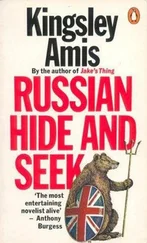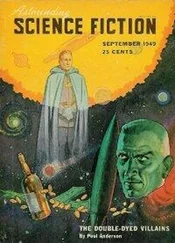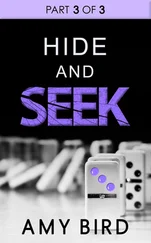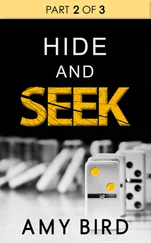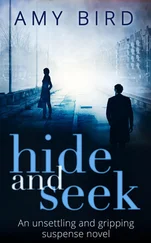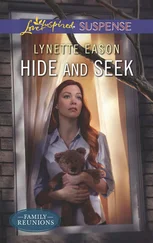Уилки Коллинз - Hide and Seek
Здесь есть возможность читать онлайн «Уилки Коллинз - Hide and Seek» весь текст электронной книги совершенно бесплатно (целиком полную версию без сокращений). В некоторых случаях можно слушать аудио, скачать через торрент в формате fb2 и присутствует краткое содержание. Год выпуска: 2005, Жанр: Классическая проза, на английском языке. Описание произведения, (предисловие) а так же отзывы посетителей доступны на портале библиотеки ЛибКат.
- Название:Hide and Seek
- Автор:
- Жанр:
- Год:2005
- ISBN:нет данных
- Рейтинг книги:5 / 5. Голосов: 1
-
Избранное:Добавить в избранное
- Отзывы:
-
Ваша оценка:
- 100
- 1
- 2
- 3
- 4
- 5
Hide and Seek: краткое содержание, описание и аннотация
Предлагаем к чтению аннотацию, описание, краткое содержание или предисловие (зависит от того, что написал сам автор книги «Hide and Seek»). Если вы не нашли необходимую информацию о книге — напишите в комментариях, мы постараемся отыскать её.
Hide and Seek — читать онлайн бесплатно полную книгу (весь текст) целиком
Ниже представлен текст книги, разбитый по страницам. Система сохранения места последней прочитанной страницы, позволяет с удобством читать онлайн бесплатно книгу «Hide and Seek», без необходимости каждый раз заново искать на чём Вы остановились. Поставьте закладку, и сможете в любой момент перейти на страницу, на которой закончили чтение.
Интервал:
Закладка:
On the outskirts of that part of the new suburb appropriated to these unhappy middle classes with moderate incomes, there lived a gentleman (by name Mr. Valentine Blyth) whose life offered as strong a practical contradiction as it is possible to imagine to the lives of his neighbors.
He was by profession an artist—an artist in spite of circumstances. Neither his father, nor his mother, nor any relation of theirs, on either side, had ever practiced the Art of Painting, or had ever derived any special pleasure from the contemplation of pictures. They were all respectable commercial people of the steady fund-holding old school, who lived exclusively within their own circle; and had never so much as spoken to a live artist or author in the whole course of their lives. The City-world in which Valentine’s boyhood was passed, was as destitute of art influences of any kind as if it had been situated on the coast of Greenland; and yet, to the astonishment of everybody, he was always drawing and painting, in his own rude way, at every leisure hour. His father was, as might be expected, seriously disappointed and amazed at the strange direction taken by the boy’s inclinations. No one (including Valentine himself) could ever trace them back to any recognizable source; but everyone could observe plainly enough that there was no hope of successfully opposing them by fair means of any kind. Seeing this, old Mr. Blyth, like a wise man, at last made a virtue of necessity; and, giving way to his son, entered him, under strong commercial protest, as a student in the Schools of the Royal Academy.
Here Valentine remained, working industriously, until his twenty-first birthday. On that occasion, Mr. Blyth had a little serious talk with him about his prospects in life. In the course of this conversation, the young man was informed that a rich merchant-uncle was ready to take him into partnership; and that his father was equally ready to start him in business with his whole share, as one of three children, in the comfortable inheritance acquired for the family by the well-known City house of Blyth and Company. If Valentine consented to this arrangement, his fortune was secured, and he might ride in his carriage before he was thirty. If, on the other hand, he really chose to fling away a fortune, he should not be pinched for means to carry on his studies as a painter. The interest of his inheritance on his father’s death, should be paid quarterly to him during his father’s lifetime: the annual independence thus secured to the young artist, under any circumstances, being calculated as amounting to a little over four hundred pounds a year.
Valentine was not deficient in gratitude. He took a day to consider what he should do, though his mind was quite made up about his choice beforehand; and then persisted in his first determination; throwing away the present certainty of becoming a wealthy man, for the sake of the future chance of turning out a great painter.
If he had really possessed genius, there would have been nothing very remarkable in this part of his history, so far; but having nothing of the kind, holding not the smallest spark of the great creative fire in his whole mental composition, surely there was something very discouraging to contemplate, in the spectacle of a man resolutely determining, in spite of adverse home circumstances and strong home temptation, to abandon all those paths in life, along which he might have walked fairly abreast with his fellows, for the one path in which he was predestinated by Nature to be always left behind by the way. Do the announcing angels, whose mission it is to whisper of greatness to great spirits, ever catch the infection of fallibility from their intercourse with mortals? Do the voices which said truly to Shakespeare, to Raphael, and to Mozart, in their youth-time,—You are chosen to be gods in this world—ever speak wrongly to souls which they are not ordained to approach? It may be so. There are men enough in all countries whose lives would seem to prove it—whose deaths have not contradicted it.
But even to victims such as these, there are pleasant resting-places on the thorny way, and flashes of sunlight now and then, to make the cloudy prospect beautiful, though only for a little while. It is not all misfortune and disappointment to the man who is mentally unworthy of a great intellectual vocation, so long as he is morally worthy of it; so long as he can pursue it honestly, patiently, and affectionately, for its own dear sake. Let him work, though ever so obscurely, in this spirit towards his labor, and he shall find the labor itself its own exceeding great reward. In that reward lives the divine consolation, which, though Fame turn her back on him contemptuously, and Affluence pass over unpitying to the other side of the way, shall still pour oil upon all his wounds, and take him quietly and tenderly to the hard journey’s end. To this one exhaustless solace, which the work, no matter of what degree, can yield always to earnest workers, the man who has succeeded, and the man who has failed, can turn alike, as to a common mother—the one, for refuge from mean envy and slanderous hatred, from all the sorest evils which even the thriving child of Fame is heir to; the other, from neglect, from ridicule, from defeat, from all the petty tyrannies which the pining bondman of Obscurity is fated to undergo.
Thus it was with Valentine. He had sacrificed a fortune to his Art; and his Art—in the world’s eye at least—had given to him nothing in return. Friends and relatives who had not scrupled, on being made acquainted with his choice of a vocation, to call it in question, and thereby to commit that worst and most universal of all human impertinences, which consists of telling a man to his face, by the plainest possible inference, that others are better able than he is himself to judge what calling in life is fittest and worthiest for him—friends and relatives who thus upbraided Valentine for his refusal to accept the partnership in his uncle’s house, affected, on discovering that he made no public progress whatever in Art, to believe that he was simply an idle fellow, who knew that his father’s liberality placed him beyond the necessity of working for his bread, and who had taken up the pursuit of painting as a mere amateur amusement to occupy his leisure hours. To a man who labored like poor Blyth, with the steadiest industry and the highest aspirations, such whispered calumnies as these were of all mortifications the most cruel, of all earthly insults the hardest to bear.
Still he worked on patiently, never losing faith or hope, because he never lost the love of his Art, or the enjoyment of pursuing it, irrespective of results, however disheartening. Like most other men of his slight intellectual caliber, the works he produced were various, if nothing else. He tried the florid style, and the severe style; he was by turns devotional, allegorical, historical, sentimental, humorous. At one time, he abandoned figure-painting altogether, and took to landscape; now producing conventional studies from Nature,—and now, again, reveling in poetical compositions, which might have hung undetected in many a collection as doubtful specimens of Berghem or Claude.
But whatever department of painting Valentine tried to excel in, the same unhappy destiny seemed always in reserve for each completed effort. For years and years his pictures pleaded hard for admission at the Academy doors, and were invariably (and not unfairly, it must be confessed) refused even the worst places on the walls of the Exhibition rooms. Season after season he still bravely struggled on, never depressed, never hopeless while he was before his easel, until at last the day of reward—how long and painfully wrought for!—actually arrived. A small picture of a very insignificant subject—being only a kitchen “interior,” with a sleek cat on a dresser, stealing milk from the tea-tray during the servant’s absence—was benevolently marked “doubtful” by the Hanging Committee; was thereupon kept in reserve, in case it might happen to fit any forgotten place near the floor—did fit such a place—and was really hung up, as Mr. Blyth’s little unit of a contribution to the one thousand and odd works exhibited to the public, that year, by the Royal Academy.
Читать дальшеИнтервал:
Закладка:
Похожие книги на «Hide and Seek»
Представляем Вашему вниманию похожие книги на «Hide and Seek» списком для выбора. Мы отобрали схожую по названию и смыслу литературу в надежде предоставить читателям больше вариантов отыскать новые, интересные, ещё непрочитанные произведения.
Обсуждение, отзывы о книге «Hide and Seek» и просто собственные мнения читателей. Оставьте ваши комментарии, напишите, что Вы думаете о произведении, его смысле или главных героях. Укажите что конкретно понравилось, а что нет, и почему Вы так считаете.


